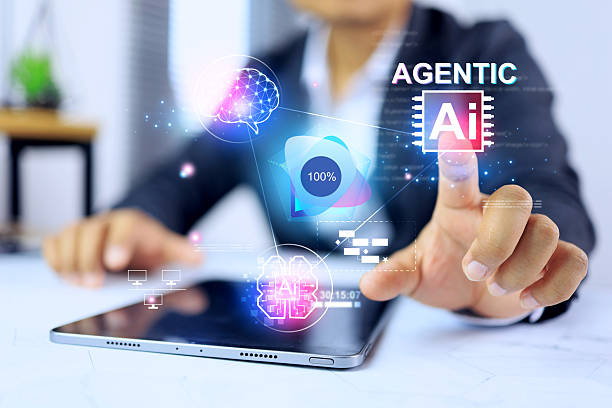What is On-Page SEO and Why Does It Matter?
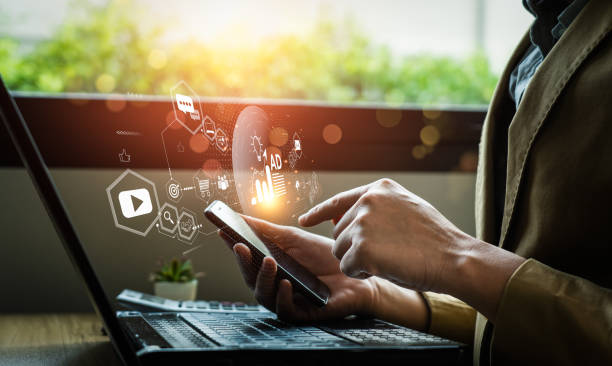
On-Page SEO refers to the set of actions you take within your website to improve its ranking in search results.
These actions include optimizing content, site structure, HTML tags, and other factors related to your website.
The importance of On-Page SEO lies in the fact that it helps search engines better understand the content of your website and associate it with users’ search queries.
A strong On-Page SEO strategy can increase organic traffic, improve user experience, and ultimately increase conversion rates.
In other words, On-Page SEO helps you optimize your website for search engines and users, and thereby achieve your business goals.
Find more information about SEO here.
By optimizing various elements of your website, you can show search engines what your website is about and why it should rank higher in search results.
For example, using appropriate #keywords in titles, meta descriptions, and main page content helps search engines better understand the page’s topic.
Also, creating a well-organized and user-friendly site structure helps users easily navigate your website and find the information they need.
On-Page SEO also includes optimizing images, page loading speed, and other technical factors that affect the user experience.
Tired of missing out on business opportunities due to not having a professional company website? Worry no more! With Rasaweb’s corporate website design services:
✅ Your brand’s credibility and professionalism will increase.
✅ You will attract more customers and sales leads.
⚡ Get a free consultation now to get started!
Keyword Research and Choosing the Best Ones
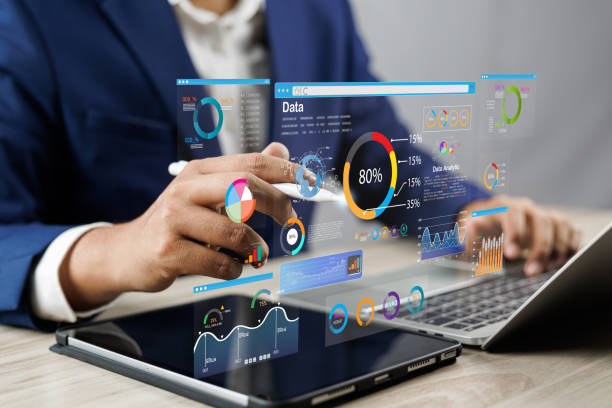
Keyword research is the cornerstone of any successful On-Page SEO strategy.
This process involves identifying the words and phrases that users use to search for information related to your business.
By understanding these keywords, you can optimize your content to rank higher in search results for these phrases.
Various tools are available for keyword research, including Google Keyword Planner, SEMrush, and Ahrefs.
These tools help you review search volume, competition, and other information related to different keywords.
It is important to choose keywords that are both relevant to your business and have a significant search volume.
After identifying target keywords, you should strategically use them in your website content.
This includes using keywords in titles, meta descriptions, HTML tags, and main page content.
However, it is important to avoid overusing keywords, as this can make your content appear unnatural and be penalized by search engines.
Instead, try to incorporate your keywords naturally and relevantly into your content and focus on providing value for users.
Keyword Research Guide can be found on this site.
Optimizing Titles and Meta Descriptions
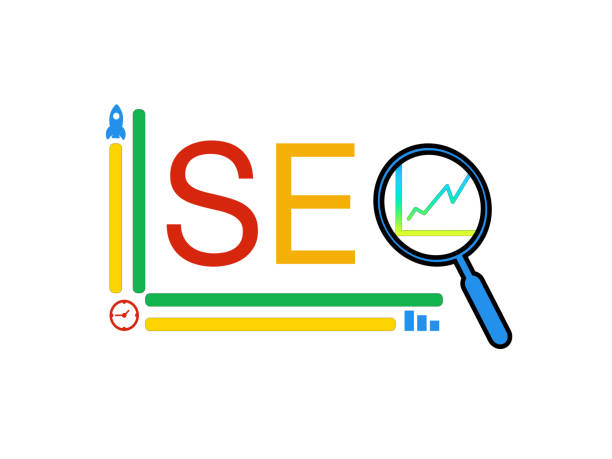
Titles and meta descriptions are the first things users see in search results.
Therefore, it is important to optimize them to be both attractive and relevant to the page’s content.
Titles should be short, accurate, and include the page’s main keyword.
Meta descriptions should provide a summary of the page’s content and encourage users to click on your link.
Optimizing titles and meta descriptions not only helps improve your ranking in search results but also increases your click-through rate (CTR).
When writing titles and meta descriptions, keep in mind that they should be written for users, not just for search engines.
Use keywords naturally and focus on providing value for users.
Also, avoid creating duplicate titles and meta descriptions, as this can confuse search engines.
For each page of your website, create unique titles and meta descriptions that accurately reflect the content of that page.
Refer to this link for a better understanding: SEO Title.
| Element | Description |
|---|---|
| Page Title | The main title that appears in search results. |
| Meta Description | A short summary of the page’s content that appears below the title in search results. |
Optimizing Page Content
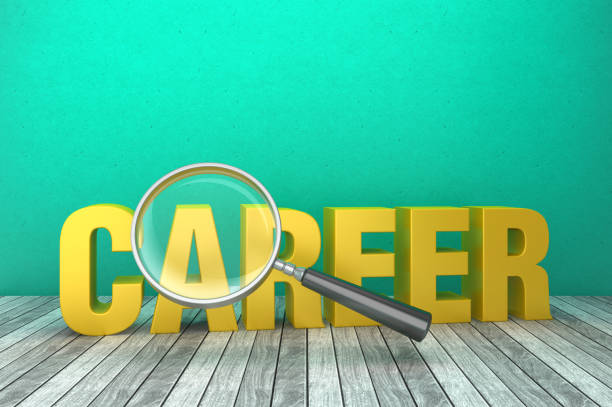
Page content is the heart of any website.
Your content should be valuable, relevant, and engaging to attract users and keep them on your website.
When writing content, keep in mind that you should write for users, not just for search engines.
Avoid overusing keywords and focus on providing useful and practical information.
Also, organize your content in a way that is easy to read.
Use titles, subtitles, paragraphs, and lists to break up the text and use images and videos to make the content more engaging.
On-Page SEO means optimizing your content for search engines, but it does not mean sacrificing content quality.
Your goal should be to create content that is both useful to users and understandable to search engines.
By following these principles, you can create content that attracts organic traffic and improves user experience.
Learn how to write good content here.
Dissatisfied with the low sales of your online store?
Rasaweb is your solution to having a professional and high-selling online store.
✅ Significant increase in sales and revenue
✅ Easy and enjoyable shopping experience for customers
⚡ Get a free consultation from Rasaweb right now!
Optimizing Images
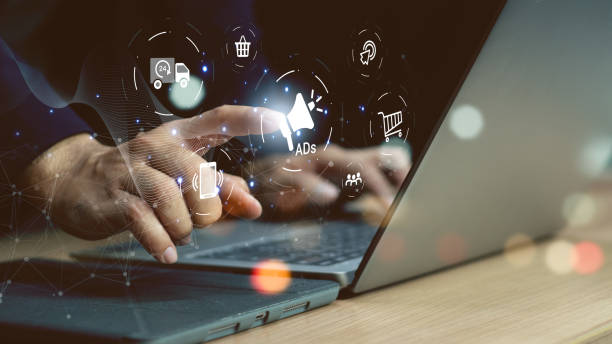
Images can play an important role in making your content more engaging, but if they are not properly optimized, they can slow down page loading speed and negatively impact On-Page SEO.
When using images, be sure to save them in the appropriate format (such as JPEG or PNG) and optimize their size to reduce their file size.
Also, use the Alt tag to describe images.
The Alt tag helps search engines understand the content of images and display them in search results.
In addition, you can use image file names to include relevant keywords.
Instead of using default file names (such as IMG_1234.jpg), use descriptive file names (such as seo-dakheli.jpg).
By following these simple tips, you can optimize your images to both improve user experience and your On-Page SEO.
Improving Page Loading Speed
![]()
Page loading speed is an important factor in On-Page SEO and user experience.
Users who have to wait a long time for a page to load are more likely to leave your website and go to your competitors.
Google also considers page loading speed as a ranking factor.
Therefore, improving page loading speed can significantly affect your ranking in search results.
There are various ways to improve page loading speed, including optimizing images, enabling Gzip compression, using a Content Delivery Network (CDN), and choosing a quality web host.
By taking these steps, you can significantly improve your page loading speed and enhance the user experience.
There is a direct relationship between On-Page SEO and site speed.
Read more about PageSpeed here.
Internal Linking

Internal linking refers to the process of creating links between different pages of your website.
Internal linking can help search engines better understand your website’s structure and recognize the importance of different pages.
Also, internal linking can help users easily navigate your website and find the information they need.
A good internal linking strategy can improve your ranking in search results and increase organic traffic.
When creating internal links, keep in mind that the links should be relevant to the page’s content and use descriptive anchor text.
Instead of using general anchor texts (such as “click here”), use anchor texts that accurately reflect the topic of the destination page.
For example, if you want to link to a page about On-Page SEO, use the anchor text “On-Page SEO.”
| Link Type | Description |
|---|---|
| Internal Links | Links that point from one page on your website to another page on the same website. |
| External Links | Links that point from your website to another website. |
Responsive Design
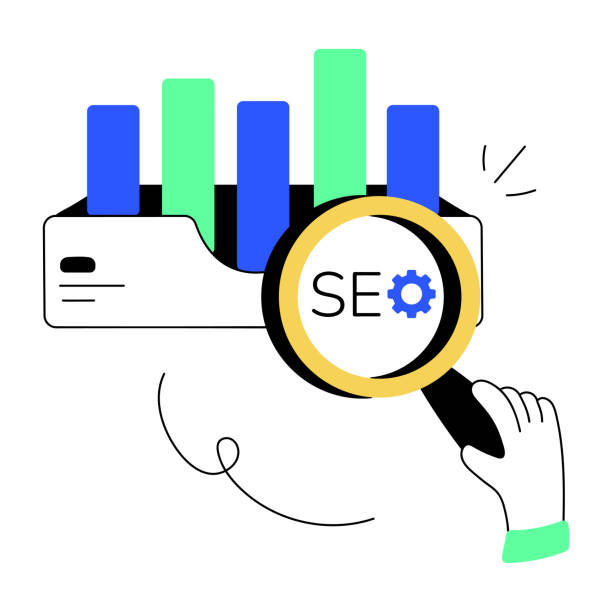
Given the increasing use of mobile devices to search the internet, responsive design has become particularly important.
Responsive design means that your website should be designed to automatically adapt to the screen size of different devices (such as mobile phones, tablets, and desktops).
Google also considers responsive design as a ranking factor.
Therefore, if your website does not yet have responsive design, be sure to update it.
Responsive design not only helps improve your ranking in search results but also improves the user experience.
Users who use mobile devices to visit your website expect your website to be displayed correctly and legibly.
By providing a good user experience, you can keep users on your website and convert them into customers.
On-Page SEO is related to website design.
Take Mobile-First Indexing seriously.
Dissatisfied with the low sales of your online store?
Rasaweb is your solution to having a professional and high-selling online store.
✅ Significant increase in sales and revenue
✅ Easy and enjoyable shopping experience for customers
⚡ Get a free consultation from Rasaweb right now!
Using Structured Data (Schema Markup)

Structured data (Schema Markup) refers to code snippets that you can add to your website to help search engines better understand your content.
Structured data can provide information about products, events, recipes, and other types of content.
By using structured data, you can help search engines create Rich Snippets that can increase your click-through rate (CTR).
Google uses structured data to better understand the content of web pages.
Correct use of schema markups can lead to better display of the site in search results and an increased click-through rate.
For example, if you have a food recipe, you can use structured data to provide information about the ingredients, cooking time, and other details related to the recipe.
This information can be displayed as a rich snippet in search results and attract users’ attention.
In this way, you have contributed to improving On-Page SEO.
Monitoring and Analyzing Results
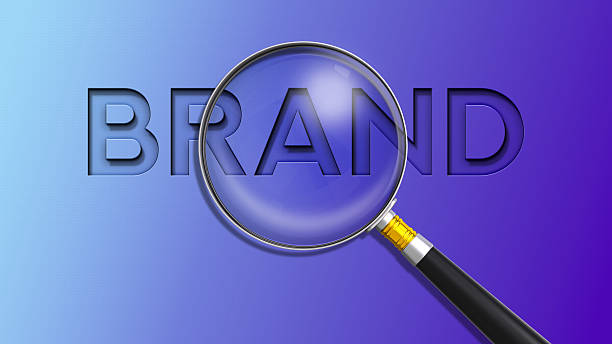
On-Page SEO is an ongoing process and requires continuous monitoring and analysis.
To evaluate the effectiveness of your On-Page SEO strategy, you should regularly review your website’s performance in search results.
You can use tools like Google Analytics and Google Search Console to track organic traffic, keyword rankings, and other important metrics.
By analyzing the data, you can identify the strengths and weaknesses of your On-Page SEO strategy and make the necessary changes to improve your website’s performance.
For example, if you notice that a particular page is not attracting a lot of organic traffic, you can optimize the title, meta description, and content of that page to improve its ranking in search results.
Remember that On-Page SEO is an iterative process and requires continuous effort.
But with effort and perseverance, you can optimize your website for search engines and users and achieve your business goals.
Note that On-Page SEO is only part of the SEO process and must be accompanied by other SEO strategies (such as external link building) to achieve desired results.
Google Analytics is a vital tool.
Frequently Asked Questions
| Number | Question | Answer |
|---|---|---|
| 1 | What is On-Page SEO? | On-Page SEO refers to the set of actions taken within a website to optimize its pages in order to achieve a better ranking in search results. |
| 2 | What is the most important factor in On-Page SEO? | Quality, relevant, and comprehensive content that meets the user’s needs is the most important factor in On-Page SEO. |
| 3 | What is the role of the Title Tag in On-Page SEO? | The Title Tag is one of the most important factors that tells search engines and users what the content of the page is about. It should include the main keyword and be attractive. |
| 4 | How important is the Meta Description tag? | Although it does not directly affect ranking, it is very effective on the click-through rate (CTR) in search results and encourages users to visit the page. |
| 5 | How is image optimization done in On-Page SEO? | By using the appropriate alt tag, compressing the image size to increase loading speed, and meaningful naming of the image file. |
| 6 | What is the importance of using headings (H1, H2, H3) in On-Page SEO? | Headings help structure content, increase readability, and help search engines understand the hierarchy and subtopics of the content. |
| 7 | What does internal linking mean and what are its benefits? | Internal linking means creating links between different pages of a website. This helps to distribute credit, improve user navigation, and help search engine crawling. |
| 8 | Where should the Focus Keyword be placed on the page? | The main keyword should be in the Title tag, Meta description, H1, first paragraph, and naturally throughout the text and, if possible, in the URL address. |
| 9 | What effect does duplicate or copied content have on On-Page SEO? | Duplicate content can harm the site’s ranking and confuse search engines as to which is the original version, and may identify it as spam. |
| 10 | How important is page loading speed in On-Page SEO? | Page loading speed is an important ranking factor and directly affects the user experience. Slow pages increase user bounce rates. |
And other services of Rasa Web Advertising Agency in the field of advertising
Intelligent Customer Journey Map: A fast and efficient solution to increase site visits by focusing on a SEO-oriented content strategy.
Intelligent Digital Branding: A combination of creativity and technology to increase click-through rates by customizing the user experience.
Intelligent Sales Automation: A fast and efficient solution for user interaction with a focus on attractive user interface design.
Intelligent Digital Advertising: A creative platform to improve customer acquisition with custom programming.
Intelligent Advertising Campaign: Transform the click-through rate with the help of customizing the user experience.
And more than hundreds of other services in the field of internet advertising, advertising consulting and organizational solutions
Internet advertising | Advertising strategy | Advertorial
Resources
On-Page SEO Tutorial in Simple Language [Comprehensive Guide]
,What is On-Page SEO? Comprehensive On-Page SEO Guide
,What is On-Page SEO? Website On-Page SEO Training
,What is On-Page SEO? Complete On-Page SEO Guide
? To elevate your business in the digital world and achieve unprecedented success, Rasaweb Afarin Digital Marketing Agency is by your side with its expertise and experience. From user-friendly website design and SEO optimization to running targeted advertising campaigns, we are ready to transform your brand online and pave the way for sustainable growth.
Contact us for consultation and services.
📍 Tehran, Mirdamad Street, next to the Central Bank, South Kazerun Alley, Ramin Alley No. 6


